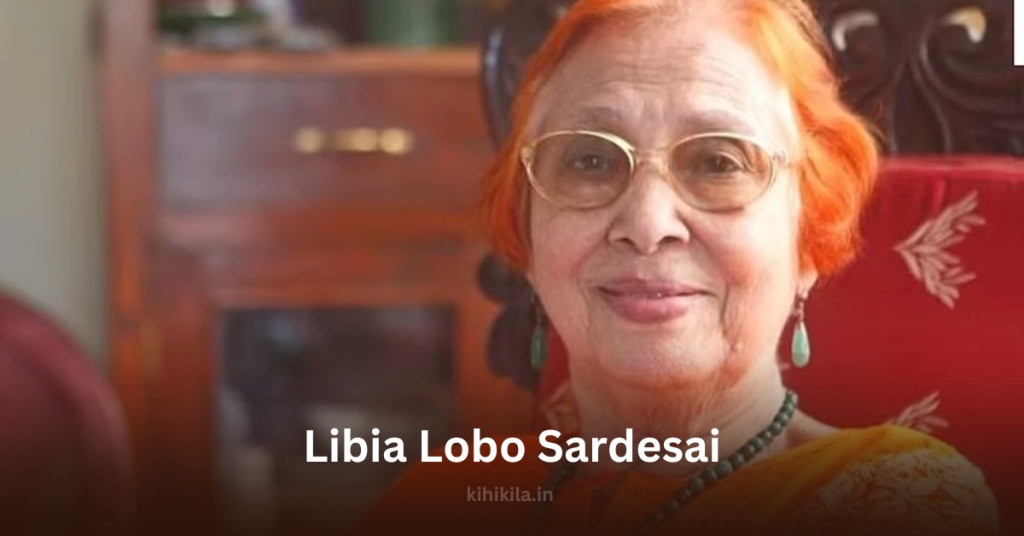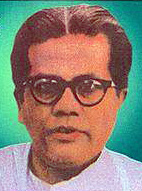Libia Lobo Sardesai: A key figure in the Goan liberation movement, was recently honored with the Padma Shri, India’s fourth-highest civilian award. This recognition celebrates her significant contributions to Goa’s fight for freedom from Portuguese colonial rule. Born in 1924, Libia played a crucial role in the anti-colonial struggle, particularly through the establishment of an underground radio station.
Libia Lobo Sardesai’s Early Years
Libia Lobo Sardesai was born in Portuguese-ruled Goa and spent her formative years in Bombay (now Mumbai). During her college years, she became actively involved in the Goan nationalist movement. The oppressive policies of the Portuguese government, including the arrest of peaceful protestors in 1954, strengthened her resolve to fight for Goa’s independence.
The Role of Underground Radio in the Freedom Struggle

In response to severe censorship imposed by Portuguese authorities, Libia Lobo Sardesai and her husband, Vaman Sardesai, established an underground radio station. Initially named ‘Q,’ it was later known as ‘Goenche Sodvonecho Awaz’ and ‘Voz de Liberdade.’ The station broadcasted crucial information about the liberation struggle, countering Portuguese propaganda and inspiring Goans to resist colonial rule.
Stealth and Strategy: Broadcasting in Secrecy
The underground radio station operated from dense forests in Maharashtra and Karnataka. Libia, Vaman, and their fellow nationalists worked tirelessly, often for 18 hours a day, gathering news from various sources and preparing broadcasts. Their isolated existence in the jungle was fraught with challenges, including threats from wildlife and the constant danger of being discovered by Portuguese authorities.
The Final Countdown to Freedom
As the liberation movement gained momentum, Libia Lobo Sardesai and Vaman were moved to a rest-house in Belgaum just days before Operation Vijay. On December 17, 1961, they transmitted a crucial message from the Indian Defence Minister to the Portuguese Governor-General, issuing a final warning about the impending military action.
The Historic Declaration of Goa’s Freedom
On December 19, 1961, Libia etched her name in history by announcing Goa’s liberation from an Indian Air Force plane. Using a radio transmitter and loudspeaker, she proclaimed, “Today, after 451 years of alien rule, Goa is free.” This defining moment signified the end of colonial dominance and a new dawn for Goa.
Key Events in Goa’s Integration into India
- India-Portugal Relations Post-Independence
- India and Portugal maintained friendly ties after Indian Independence in 1947, establishing diplomatic relations in 1949.
- Tensions rose in 1950 when Portugal refused to relinquish Goa, Daman and Diu, and Dadra and Nagar Haveli.
- Portugal’s Stand on Goa
- In 1951, Portugal amended its constitution, declaring Goa an “overseas province” instead of a colony.
- This move aimed to invoke NATO’s collective security clause in case of an Indian attack.
- Breakdown of Diplomatic Ties
- Diplomatic relations were severed in 1955 after failed negotiations over Portuguese enclaves in India.
- In 1961, India launched Operation Vijay, annexing Goa, Daman, and Diu on December 19, ending 451 years of Portuguese rule.
- Integration of Other Territories
- Dadra and Nagar Haveli: Integrated in 1961 after Indian nationalists captured it in 1954.
- Daman and Diu: Integrated alongside Goa in 1961.
Goa’s Struggle for Freedom: A Historical Perspective
- Colonial Rule and Its Impact
- Goa became a Portuguese colony in 1510 when Admiral Afonso de Albuquerque defeated Bijapur’s Yusuf Adil Shah.
- Rise of Nationalist Movements
- Inspired by India’s freedom struggle, Goan nationalism grew in the early 20th century.
- Tristão de Bragança Cunha, the “Father of Goan Nationalism,” founded the Goa National Congress in 1928.
- In 1946, Ram Manohar Lohia led a significant rally advocating for civil liberties and freedom, marking a turning point in Goa’s struggle for independence.
- Different Paths to Liberation
- Some activists, influenced by Mahatma Gandhi, adopted peaceful approaches like Satyagraha, emphasizing non-violence.
- Others, including the Azad Gomantak Dal (AGD), advocated for armed resistance.
- Internal differences between these strategies delayed liberation efforts.
Libia Lobo Sardesai’s contribution to Goa’s independence remains an inspiring chapter in India’s history. Her role in the underground radio movement and her unwavering commitment to the cause played a crucial part in bringing an end to Portuguese rule in Goa.












